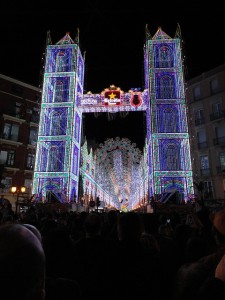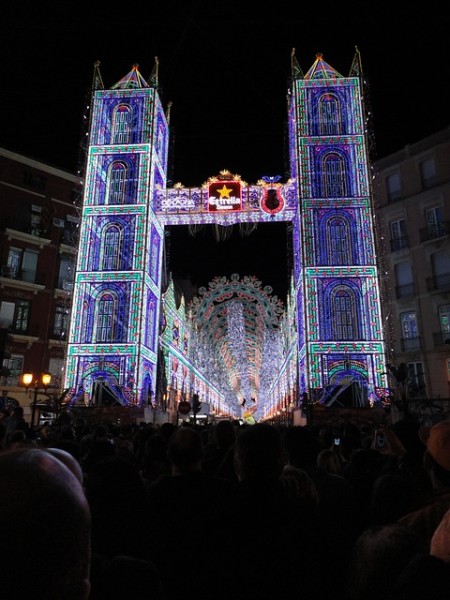It’s official; the Valencia Community is the place in Spain where people most like to party!
 Of course a party is not a festival, and it shouldn’t be confused either with a political party, which is not much fun wherever it is.
Of course a party is not a festival, and it shouldn’t be confused either with a political party, which is not much fun wherever it is.
A party is what you have in your house with a few friends, whereas a festival is far more complex and is organised by a much larger group of people, often a whole town. And it is in the towns of the Valencia Community that more festivals are held than in any other region of Spain; even Andalucía!
Valencia has 12 ‘Fiestas de Interés Turístico Internacional’; and it’s official!
The Secretaría General de Turismo del Ministerio de Industria, Turismo y
Comercio made the ruling, basing its criteria on the cultural values expressed by the festivals, the existence of a popular tradition, their ethnological character and their importance as tourist attractions.
Second best came Andalusia, with a miserable 8; which may explain why Andalusians look so sad most of the time.
The twelve Valencia festivals are Valencia’s Fallas, which takes place in March, culminating on the 19th (although anyone who lives here knows that it never really ends), the Tomatina of Buñol, which is held on the last Wednesday in August (probably because Wednesday is so-named because it was the day of the Norse God Woden, the God of war, and the Tomatina is after all a bloody battle when the locals paint the town red).
Among the religious festivals are the Misteri dElx, held on the 14th and 15th of August, Palm Sunday in Elche and the Easter parades in Orihuela and Crevillent.
Getting back to battles, we have the Moors and Christians (Moros y Cristianos) of both Alcoy and La Vila Joiosa, whereas for the more musically inclined there is the Certamen Internacional de Habaneras y Polifonía at Torrevieja in July.
For those who like to take their lives in their hands, or the bull by the horns, there is the running of the bulls and horses in Segorbe during the second week of September, and two festivals which resemble Fallas; the Hogueras of Alicante and the Magdalena of Castellón,
Those who believe that with all these festivals nobody ever does any work, should remember that partying is very hard work involving great personal sacrifice, and that it’s very profitable too. Thousands of seriously hard working Germans and Swedes are willing to pay a lot of money to have an excuse to go crazy once a year here.

